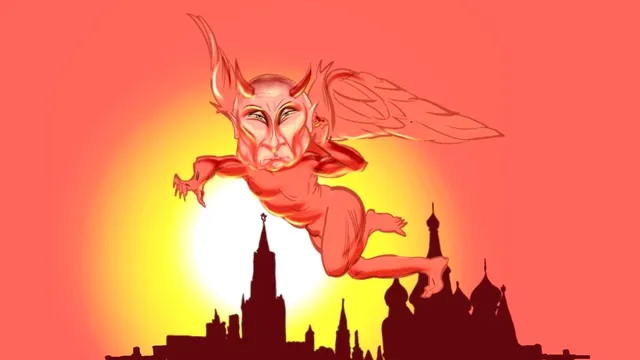
Nigel Farage criticizes Trump's approach towards Ukraine-Russia ceasefire
2025-03-29 18:00- Nigel Farage openly criticized Donald Trump's approach to the Ukraine-Russia ceasefire negotiations.
- He expressed a worry that the current US strategy may allow Putin to appear victorious in the conflict.
- Farage concluded that peace should not come at the cost of enabling aggressive behavior from Russia.
Express your sentiment!
Insights
In an appearance on BBC Radio 4's Today programme, Nigel Farage, the leader of Reform UK and previously a vocal supporter of Donald Trump during the 2024 presidential campaign, expressed his distaste for the current approach of the Trump administration regarding a ceasefire deal in the ongoing Ukraine-Russia conflict. Farage stated that his main concern was that the peace process should not end with Putin emerging as the victor of the situation, emphasizing the need for a resolution that ensures stability without rewarding aggressive actions by Russia. Farage's position indicates a clear divergence from the administration's strategy, which he believes may inadvertently allow Putin to gain an upper hand. According to Farage, while peace is a desirable outcome, it cannot come at the expense of appeasing Russia's aggressive ambitions. He clarified this sentiment by stating, 'We want peace, but we can't have a peace where Putin turns out to be the winner,' highlighting his call for a more balanced and fair approach in the negotiations. The backdrop to Farage's comments involves the broader international landscape where Putin is seen as actively engaging in strategies that aim to exploit Trump's aspirations for a strong negotiation position on the world stage. There are observations that Putin uses various tactics, targeting Trump's desire for public recognition as a master dealmaker. This situation presents a complex interplay of diplomacy and international relations, where the stakes are incredibly high due to ongoing conflicts. As leaders on both sides navigate these turbulent waters, the decisions made will have profound implications not just for the respective nations but also for the global community. The call for a partnership that doesn't reward dictatorial behavior is essential for ensuring a credible and lasting peace in Ukraine, one that is critical in setting precedents and norms in international diplomacy. Farage's critique could reflect a growing sentiment among some politicians and analysts that while negotiation and dialogue are necessary, they must come with a firm stance against Russian aggression to avoid future escalations.
Contexts
The ongoing conflict between Ukraine and Russia, which began in 2014 and escalated in 2022, has had a profound impact on global diplomacy, reshaping international relations, alliances, and policy-making across the globe. This conflict has underscored the fragility of post-Cold War frameworks and highlighted the challenges faced by international organizations, such as the United Nations, in maintaining peace and security. As countries have taken sides or sought to mediate, the diplomatic landscape has transformed, with nations reevaluating their foreign policies and strategic partnerships based on their positions regarding the conflict. The realignment of alliances has manifested in increasing support for Ukraine from Western nations and a strengthening of ties between Russia and several other states that have either remained neutral or expressed backing for Moscow's actions. In Western countries, the response to the Ukraine-Russia conflict has involved a complex mix of military aid, economic sanctions on Russia, and diplomatic outreach to form a united front. NATO has seen renewed relevance, with member states reaffirming their commitment to collective defense and enhancing military readiness in Eastern Europe. This unified response has not only bolstered Ukraine's capabilities but also served as a signal to other countries about the potential consequences of aggressive territorial expansion. Furthermore, the sanctions imposed on Russia have sparked debates on the effectiveness of economic measures as tools of diplomacy, prompting discussions about long-term strategies for dealing with states that engage in military aggression. At the same time, the conflict has also revealed divisions within the international community. Some nations, particularly those with historical ties or reliance on Russia, have resisted taking a firm stance against Moscow. This has raised questions about the effectiveness of international norms and agreements designed to prevent the use of force in resolving disputes. The diplomatic wrangling has also been compounded by the intertwined issues of energy security and food supply chains, as the war in Ukraine has disrupted grain exports and energy supplies, leading to global inflation and shortages. This situation has forced countries to reassess their dependencies and consider alternative sources, fostering discussions about resilience in supply chains and energy diversification. The impact of the Ukraine-Russia conflict extends beyond immediate geopolitical implications, as it has generated a reevaluation of global governance structures. There is a growing discourse on reforming institutions like the UN Security Council to better address contemporary security challenges and represent the current power dynamics. The conflict has reinvigorated debates about sovereignty, territorial integrity, and the principle of non-interference, compelling states to reconsider their strategies and the role of diplomacy in resolving conflicts. As the landscape of global diplomacy evolves in response to the ongoing situation, it is clear that the repercussions of the Ukraine-Russia conflict will shape international relations for years to come, necessitating adaptive strategies and innovative diplomatic approaches to foster peace and stability.